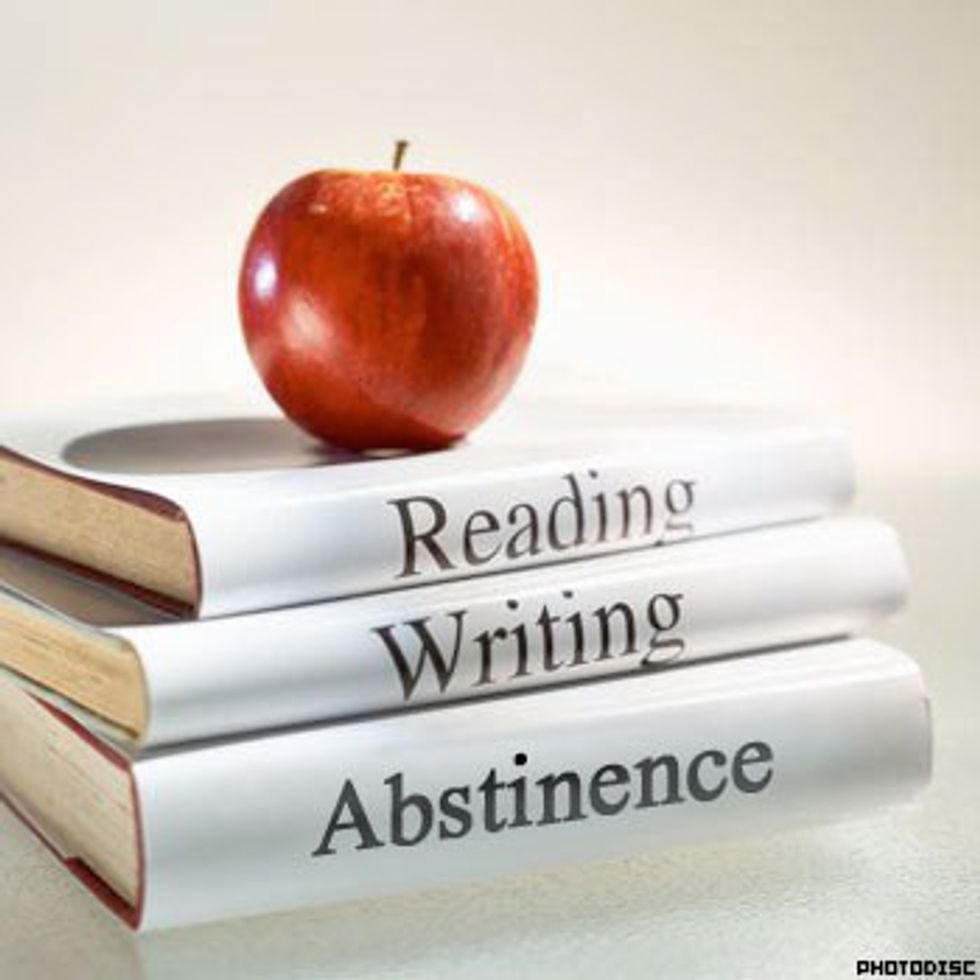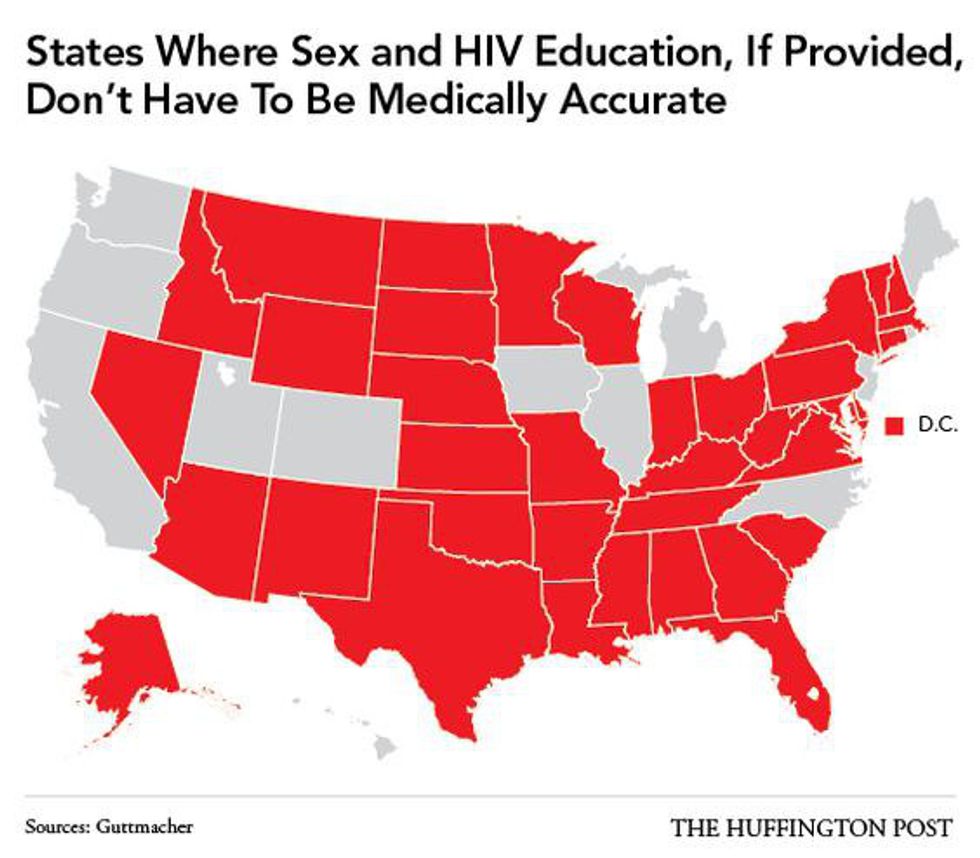When I was in eighth grade, I got my first introduction to sex ed over the course of three periods of health class. Luckily I went to a fairly progressive school in California that educated us about different forms of contraception, not just abstinence. However, there was still a heteronormative tone to my middle school sex ed that, in retrospect, I find inappropriate during a time of relative LGBTQ awareness in American society.
First of all, there is a frightening amount of abstinence-only sex ed programs that provide biased and often inaccurate information about reproductive health to young adults. Nineteen states require that public schools teach that sex should be reserved for marriage. Since 1998, our federal and state governments have directed over $1.5 billion toward these abstinence-only programs, which exclusively educate students about the virtues of abstinence and provide no information about other forms of contraception, aside from their likeliness of failure. Meanwhile, comprehensive sex ed programs receive no dedicated federal funding.
In addition to the promotion of virginity over actual sex education, public education systems largely overemphasize heteronormative and cisnormative sexual activity. Our education system needs to reject the notion that sex only encompasses penis-to-vagina intercourse. Sex is whatever an individual finds sexual, and virginity, a term often defined by vaginal penetration, is no more than a social construct used to deem a woman’s worth and purity based on her sexual experiences with men. The concept of virginity should have no place in a middle school or high school sex ed class, yet too often it’s not only addressed, but also enforced as the only reliable method of birth control.
Furthermore, heteronormative and cis-normative sex ed has the potential to invalidate and socially obscure a large population of queer youth. Some schools even teach that homosexuality is illegal or immoral. Young people learn and internalize sexual norms and expectations through the socialization and education provided to them at school. If students are taught from a young age not to be comfortable with any aspect of their sexual identities that doesn’t comply with heteronormative standards, they are put at risk for depression, guilt, or other problems with confidence or emotional health as they grow into their sexual identities. A more positive message for youth would be the idea that no sexual orientation or gender identity is better or worse than others. An LGBTQ-inclusive sex ed program might also nurture a more accepting school environment because young adults are more likely to accept LGBTQ youth (whether it be their peers or themselves) if they learn about sexual diversity.
Queer and trans individuals should be informed about their options for protection too. For example, dental dams are an option for queer cis women that should be discussed in sex education. When it comes to anal sex, there is a higher risk for tearing and trauma, resulting in an increased risk for STI transmission. However, STI risk can be decreased through use of protection and lubricants. In order to ensure safety of all individuals, not just those who conform with heteronormative sexual standards, students should receive comprehensive sexual education that is applicable to everyone.
Public school sex ed is one way in which our government controls LGBTQ bodies by using education programs to enforce strict expectations regarding sexuality and gender identity. The mere existance of gender and sexuality spectrums is just as important an aspect of sexual education as the prevention of pregnancy and STI transmission. Heteronormative sex education may cause LGBTQ youth to feel excluded by enforcing heterosexuality as the norm. Furthermore, our dominant culture and sexual education programs often don’t even address transgender, intersex, or non-binary individuals or their needs when it comes to reproductive health.
If you or someone you know is struggling to comes to terms with his/her/their sexuality in a public school system saturated with heteronormative biases, please do what you can to educate yourself or others. Reinforce the notion that all sexualities and genders are normal, and share this article with friends.
Some resources to check out:
Trans Sexuality

























